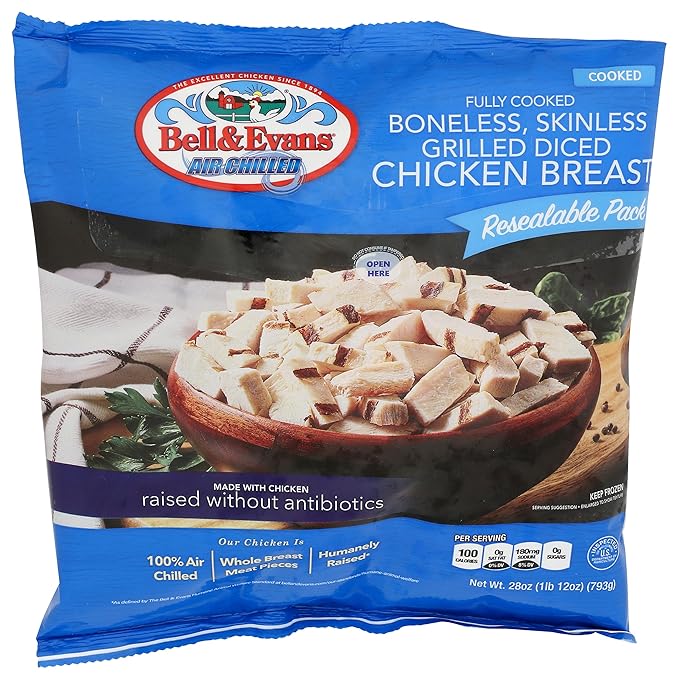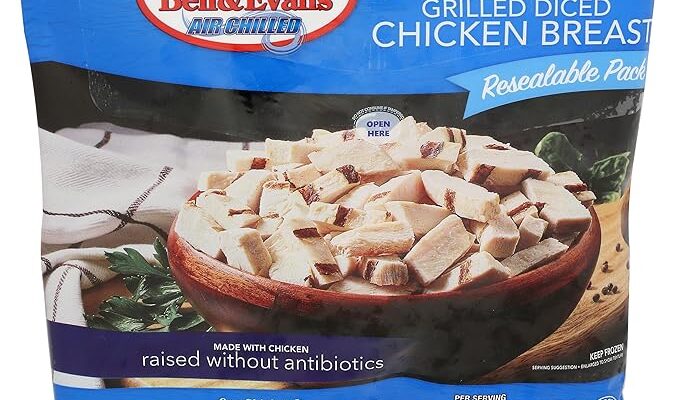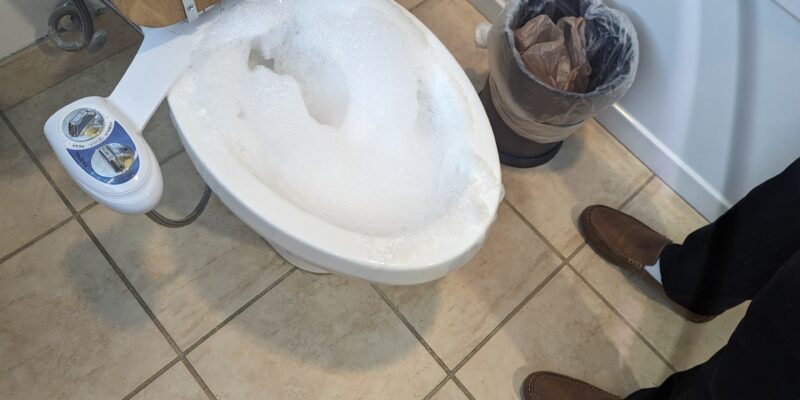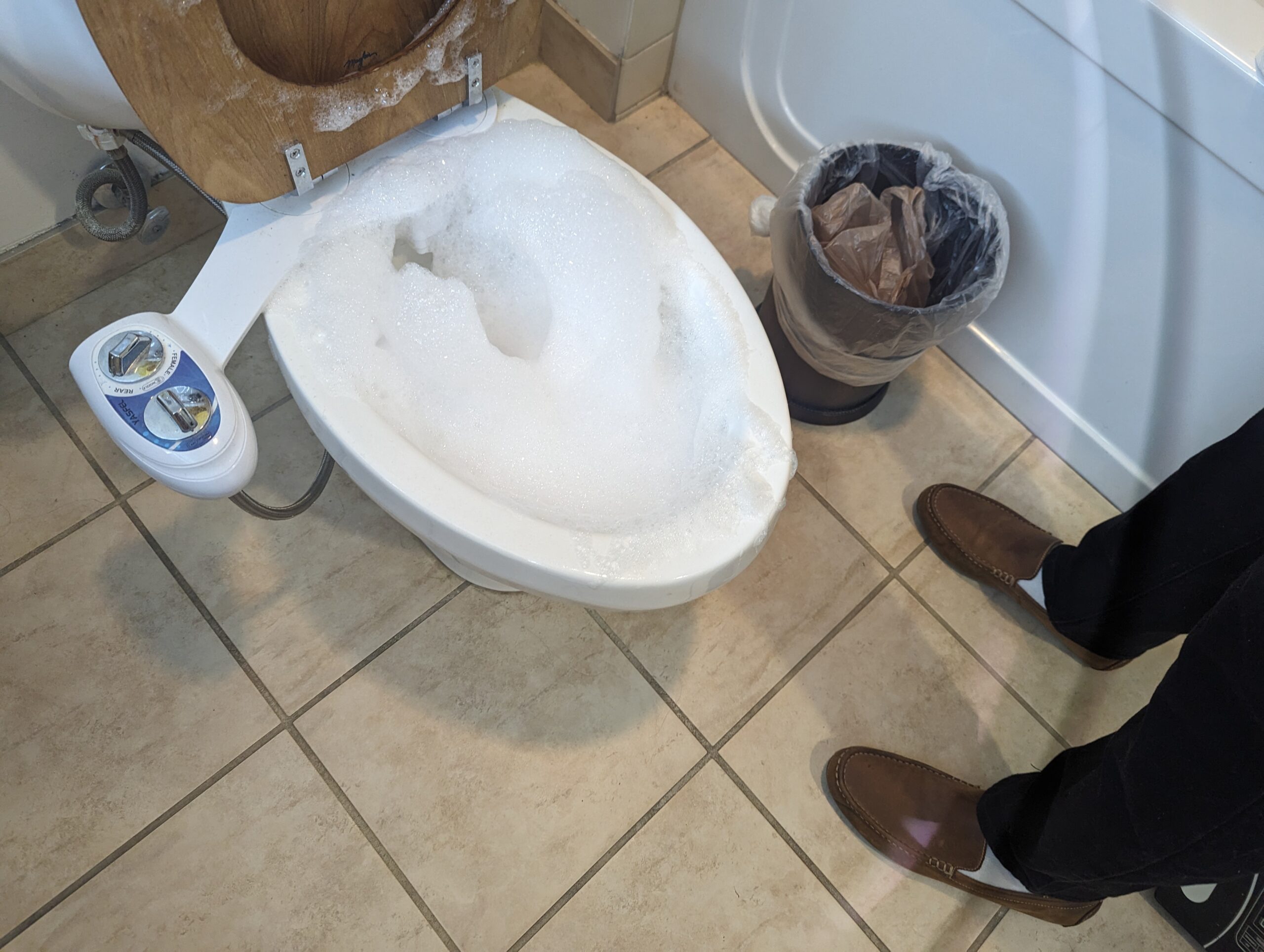
This morning, I received an email from Whole Foods as follows:
| Product Recall Alert |
| BrucePac, a Durant, OK establishment, is voluntarily recalling ready-to-eat (RTE) meat and poultry products, as they may be contaminated with Listeria monocytogenes. Consumption of food contaminated with L. monocytogenes can cause listeriosis, a serious infection primarily affecting older adults, persons with weakened immune systems, and pregnant women and their newborns. Less commonly, persons outside these risk groups are affected.
The affected product was sold in the meat department freezer and can be identified by the UPC 73898520189 and sell-by dates of 6/19/2025 – 10/8/2025. All affected products have been removed from store shelves. The following information can identify the affected product: Bell & Evans Fully Cooked Boneless, Skinless Grilled Diced Chicken Breast Product UPC: 73898520189 Sell-by date: 6/19/2025 – 10/8/2025 |
Well, wouldn’t you know, this is the chicken we used to make chicken pot pies, as mentioned several days ago. We made ten servings and ate three each. Using this same chicken, We froze the remaining servings for two more dinners. Oh, good grief.
This morning, as soon as I received the message about the recall, I immediately checked online to see the incubation period for listeria monocytogenes, which is 30 days. I thought perhaps the fact that the chicken was frozen might kill the bacteria, but freezing temperatures do not kill the toxin.
Further in the message, Whole Foods said to bring the receipt to the store for a full refund. There’s no way we’d pay for an Uber to go round trip to the closest Whole Foods store after printing a copy of the receipt. Since we’d ordered through Amazon Fresh for Whole Foods, getting the receipt would be easy, but getting to the store would not be possible without a rental car. It would cost more than the value of the chicken to get an Uber there and back.
(But what would customers who may have used the chicken and didn’t save their receipt if they purchased the chicken in the store?)
Instead, I called Whole Foods, and they gave me a phone number for Amazon. After 15 minutes on the phone, we received a full refund of $29.98 for two bags of chicken, which they refunded to my credit card on file.
Tom asked, “What about the cost of the other ingredients used to make the pot pies?” I said we’d be lucky to get the refund for the chicken, let alone the other ingredients. I am glad we ordered it through Amazon rather than the store since Amazon cooperated in providing the refund in a timely fashion.
This was the first time I’d ever been refunded for a recall. In most cases, when I read a news article about a recall, I no longer had the item to verify the UPC to confirm I had the tainted item. This is most likely the case for most shoppers when recalls are often announced for meat, fresh fruits, and vegetables, especially bagged lettuce.
Of course, we won’t eat the two remaining night’s servings but will save them until the 30-day incubation period passes, just in case we get sick. They could be used to test for pathogens. No, we won’t forget and accidentally eat these remaining servings.
I posted this story to remind readers to pay attention to recalls and save grocery receipts for at least 30 days. If you haven’t used the items, you can return them to the store for a full refund. If the infected foods have been eaten, at least having a receipt will ensure you’ll receive a refund. Hopefully, none of us get sick as a result of a recall.
Recalls are often mentioned on TV news and in some online news articles. Who still reads a newspaper these days?
Be well.
Photo from ten years ago today, October 11, 2014:
|
|




































